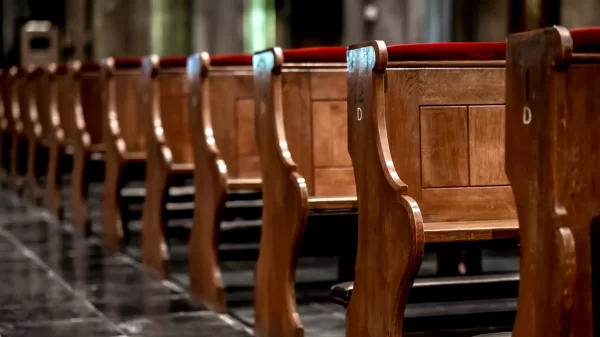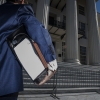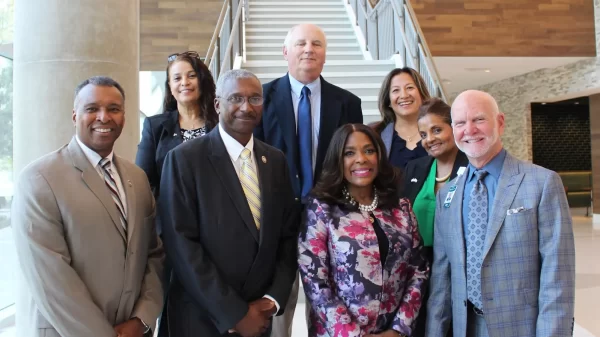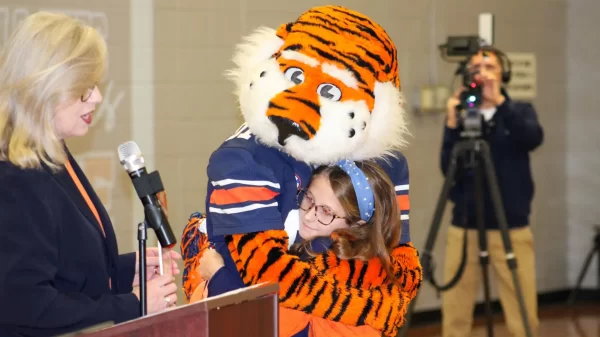By Lee Hedgepeth
Alabama Political Reporter
Troy University’s Johnson Center for Political Economy recently released a study examining the legitimacy of two previous analyses done by UAB and Alabama considering the economic impact of Medicaid expansion in the Yellowhammer State. The Troy study’s conclusions fly in the face of those of the earlier studies, which forecast revenue for the State of up to one billion dollars in the first three years of expanded Medicaid under the Affordable Care Act.
“We just relax a few of the assumptions made in their studies,” said Professor Scott Beaulier, Johnson Center Director and coauthor of Troy’s new study.
Governor Robert Bentley, who has promised not to expand Medicaid, called the earlier research pointing to positive impact “bogus.”
Instead of the one billion dollar tax boon predicted by UAB and UA, the Johnson Center study says Alabama stands to lose – not gain – $450 million during the same period.
The study cites what it claims are faulty premises in the earlier work, such as including indirect as well as direct spending into tax revenue projections, unforeseen costs, and a shortage in health care supply – what Professor Beaulier referred to as “labor market rigidities.”
Beaulier recently appeared on APTV’s Capitol Journal to defend the Johnson Center study.
“You can argue for greater healthcare,” he said, “but it will cost us something.”
A professor that participated in producing the UAB/UA studies has already commented, saying:
“The study conducted by researchers from Troy University used a different set of assumptions. Most notably, the authors assumed that the federally-funded direct healthcare spending in Alabama would not generate any new tax revenues. Although the healthcare services are exempt from sales taxes, this health spending does generate taxable income.”
The debate – at least from Beaulier – hasn’t been completely in the academic arena, though. Political motivations have also been called into question as well, with Mr.Beaulier pointing to the UAB and UA studies having been commissioned by the Alabama Hospitals’ Association, which favor medicaid expansion.
“UAB supporting study to benefit UAB hospitals is not surprising,” he noted.
The Alabama Political Reporter would note, however, that the AHA is not necessarily known for supporting liberal or Democratic candidates or a liberal agenda. For example, the only money they donated last month was $5,000 to Republican House Speaker Mike Hubbard. Over the two months prior, they donated to several more Republicans than Democrats, including Republican Senator Greg Reed and Republican Representative April Weaver.
When asked by Capitol Journal’s Don Dailey about claims that the Troy study was politically motivated, Beaulier denied, but said that people can always “follow the money” and draw their own conclusions. The Alabama Political Reporter indeed followed the money, and found quite a lot there worth following.
To start, Troy’s Johnson Center for Political Economy founding was financially backed by a gift of $3.6 million dollars to the university from the Charles Koch Foundation and the BB&T Foundation. Charles Koch, one of the famed Koch brothers, has donated hundreds of millions of dollars of the last decade to right-wing conservative Tea Party causes. Koch Industries, the corporation the brothers own, is the second largest private company in the United States.
In fact, Manuel Johnson, the Center’s namesake – who also donated to the founding – was once a conservative Federal Reserve board member, and was from 1977 to 1994 the Koch Chair at George Mason University, also the school from which Professor Beaulier received his Ph. D. in 2004.
Interestingly, this is not the first time that all these players – the Koch Brothers, BB&T, and others – have been in press headlines.
In 2011, the Tampa Bay Times reported on serious allegations about Koch’s influence at another publicly-funded university, Florida State. According to the article, titled “Billionaire’s Role in Hiring Decisions at FSU Raises Questions,” after donating $1.5 million to the college’s economics department for the hiring of new staff, Koch was entitled not only to influence over hiring and firing staff – but ultimate veto power.
“Traditionally, university donors have little official input into choosing the person who fills a chair they’ve funded. The power of university faculty and officials to choose professors without outside interference is considered a hallmark of academic freedom,” the Times article read.
“Under the agreement with the Charles G. Koch Charitable Foundation, however, faculty only retain the illusion of control. The contract specifies that an advisory committee appointed by Koch decides which candidates should be considered. The foundation can also withdraw its funding if it’s not happy with the faculty’s choice or if the hires don’t meet ‘objectives’ set by Koch during annual evaluations.”
In fact, Koch ended up vetoing 60 percent of the new staff hired for a one year period at FSU, according to the reporting, which also noted that Yale University once returned a $20 million donation because the donor tried to assert a veto power over staff decision, something Yale said was “unheard of.”
Given all this, the question ultimately becomes: If $1.5 million gives you ultimate veto power over staff, can more than double that get you an anti-Obamacare medicaid study? This question was brought even closer to the forefront when APR confirmed last week that the medicaid study was sent out to the press not by Troy University’s usual public relations desk, but by a Koch-affiliated PR group.
In addition, Professor Beaulier of Troy makes no effort to conceal the fact that he frequents – and is sometimes featured at – Alabama Policy Institute events. API is a right-wing think tank that is virulently opposed to the Patient Protection and Affordable Care Act.
The following appearances are listed on Beaulier’s curriculum vitae:
“The Supreme Court Decision: Behind the Scenes” panelist, Republican
Governors Association Healthcare Summit, Phoenix, AZ (June 2012)
“The Foundations of Liberty and Society,” Liberty Fund/Charles Koch
Foundation discussion leader, Arlington, VA (May 2012)
“Federalism,” presented at Alabama Policy Institute breakfast, Birmingham, AL
(December 2011)
Caught in the middle of all these conflicting “studies” are nearly half a million uninsured Alabamians financially unable to access proper primary or emergency healthcare and many of which would be covered under an expansion of Alabama’s current Medicaid system.























































